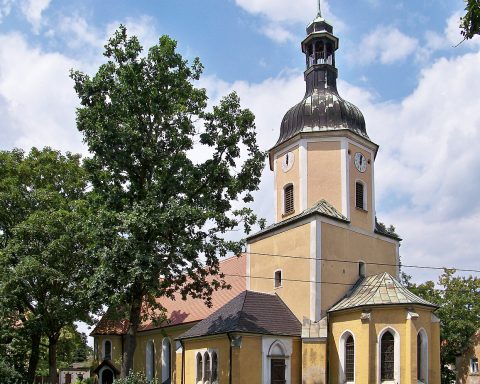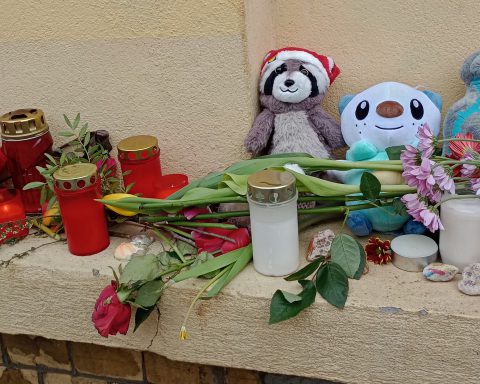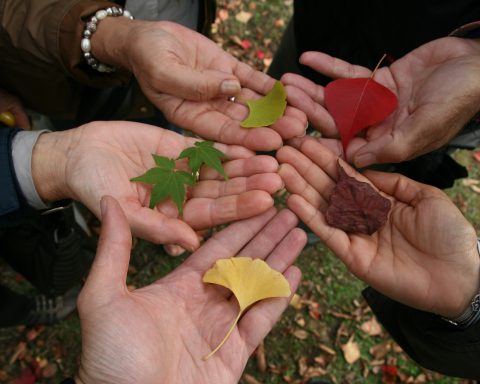You talk about it every day, and so does the elderly lady at the checkout, everyone at work and the visitors of your local restaurant at night (when it’s still 30° C). The terrible heat – die schreckliche Hitze – has us all in its clutches. In a country fabled for its efficiency, there are surely some official measures in place to counter the effects of a heatwave, right? Right.
It’s all out there for everyone to google. Average annual temperatures have been steadily rising over the past 40 years, despite a general consensus of science that we’ve been headed for a new ice age for about 200 years already.
In other words, it doesn’t really feel as if we’d have to brace future generations for a return of the glaciers any time soon. And unless you’re Donald Trump or Donald Duck, you’d accredit climate change to the effects human industrialization has on our globe heating up.

In Leipzig, you just need to go for a walk to a park around the corner to see the effect of the freak temperatures we’ve been observing since May: yellowed grass and parched soil wherever you look.
Despite warmer temperatures, summer months are traditionally the months yielding the most precipitation, helping the Saxon landscape present itself in lush and saturated colors on a sunny day. However, not anymore.

Hot, hot, hotter
Germany wouldn’t be Germany if those signs hadn’t long been noticed and measures taken to counter the effects of a heatwave. Ever since the first of many freak summers in 1976, the kraut government introduced measures to prepare for drought and deluge. Because what Donald doesn’t know is that both can be affected by global warming.
And yes, Germans wouldn’t be Germans if they didn’t invent foot-long words to describe these phenomena either. In this case, Jahrhundertsommer – summer of the century – for any summer that’s three (!) degrees warmer than your average summer, and Jahrhunderthochwasser – flood of the century – to describe a flood that is even worse than the last terrible flood. You know, the kind of flood that necessitates that the army and national help organizations step in so that overflowing rivers can be dammed with sand bags.

In Germany, this is facilitated by the Katastrophenschutzdienst, the emergency disaster management service who were deployed in the years of the big floods in 2002 and 2013. As a corollary of these landmark catastrophes, you can still see the literal watermarks like tree rings on every house in the Saxon town of Colditz. Indeed, these two floods wreaked havoc among small towns and pastures in Saxony, occurring in the space of just 15 years.

The same period has seen four (!) summers that were hotter than any summer since the German Hohenpeißenberg Meteorological Observatory started to record temperatures in 1781 – namely 2003, 2006, 2015 and 2018. In other words, four summers in 15 years that were three degrees warmer than average summers in the past 300 years.
What do you have to this, Donald?
Germany’s heatwave action
These are the challenges Germany’s national adaption strategy faces with regard to ecological calamities:
Flood control
The sewage system needs to be protected from flooding. By the sea shore, the protection dikes face a great challenge with rising sea levels, floods and storm surges. Dikes stretching several kilometers in length are being overhauled and raised. Ironically, these dikes need to be raised by a whole foot (!) to prepare for further increasing sea levels.
Agriculture
Saxony, a federal state heavily dependent on agriculture, needs farmers adapting to a shift in vegetation phases, in order to change their cultivation cycles and irrigation methods to the increasing drought.
Forestry
Foresters have long been in a race against climate change. Trees are less flexible than crops, so warmer and drier summers bring about more stress with a prolonged heatwave and widely spreading insect pests. Some trees, such as the relatively robust oaks, tolerate this better than others, as for example the sensitive spruce or moisture-loving beech.
Healthcare system
Climate change is also posing new challenges for the health system. The weakest of us – children, pensioners and invalids – are particularly sensitive to a heatwave. Infectious diseases spread faster at higher temperatures, and invasive carriers such as new kinds of ticks and the Asian tiger mosquito are about to become both endemic and indigenous. Think previously unknown viral diseases such as dengue fever – God help us.
Tourism
The habits of Germany’s holiday makers are likely to adapt to climate change in Germany. Those with a wanderlust for hot beaches need to look no further than the Baltic Sea for Mediterranean temperatures and withered leaves in June. Ski enthusiasts will have a hard time, though, to find snowy slopes beyond those dappled by snow cannons anywhere in Europe.
A few last words for Donald. With the United States withdrawing from the Paris Agreement, one of the world’s biggest economic powers now sets the trend for future climate politics. This includes:
- Reversal of The Clean Power Plan (U.S. electric industry’s shift away from coal and toward natural gas and renewables)
- Subsidies of power plants that keep large fuel supplies on site
- Tariffs and a quota on imported solar panels
- Reversal of the the Clean Air Act (U.S. tightened mileage standards for cars)
- Opening federal lands to the extraction of fossil fuels in order to boost oil, gas and coal production.
Imagine how other big economic players like China and India will respond, and what this implies for any poorer nation subscribed to the Paris Agreement. The possible ecological consequences are terrifying, with heatwave occurrences and rising sea levels being nothing but a very sinister (and real) prospect.
It’s hard to end this article on a positive note. To cheer you up a little, you should enter the word “idiot” in your Google images search. There, you have it. Sad!










